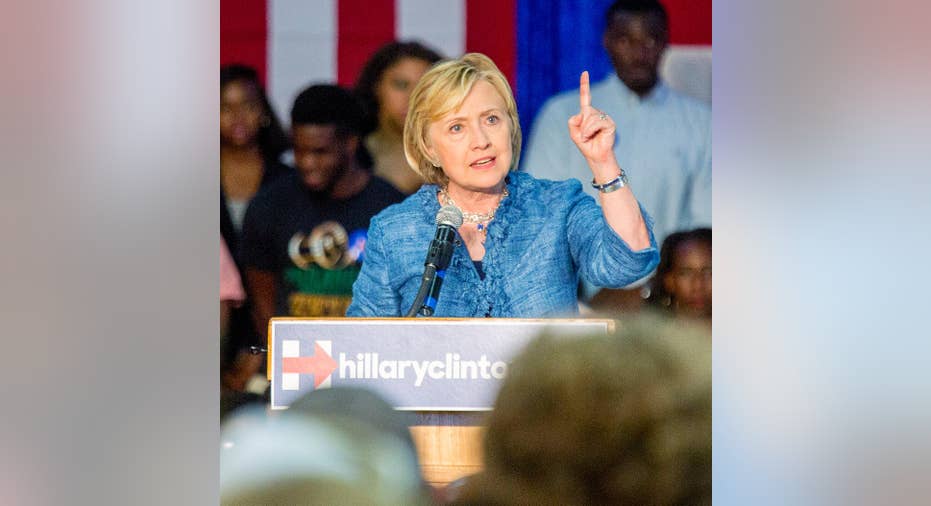Clinton pushes plan to address rising drug costs, building on health care overhaul

DES MOINES, Iowa – Hillary Rodham Clinton is laying out a new plan to rein in the rising cost of prescription drugs, seeking to build upon President Barack Obama's health care law.
The Democratic presidential candidate's proposal aims to cap monthly and annual out-of-pocket costs for prescription drugs to help patients with chronic or serious health conditions. It would also deny tax breaks for televised direct-to-consumer advertising and require drug companies that receive taxpayers' support to invest in research and development.
"We will start by capping how much you have to pay out of pocket for prescription drugs each month. And we're going to hold drug companies accountable as we work to drive down prices," Clinton said Monday at a campaign event in Louisiana.
Clinton was outlining details of her plan Tuesday at a community forum in Des Moines, Iowa, part of a weeklong push to defend Obama's health care law. The former secretary of state has credited the law with driving down the rate of uninsured Americans and chastised Republicans who have sought its repeal.
Once a political liability for Democrats, the overhaul has been credited with helping reduce the number of uninsured people from 48.6 million in 2010 to 29 million people in the first three months of 2015. Clinton's campaign, however, said a typical senior on Medicare spends more than $500 annually on out-of-pocket costs to buy prescription drugs and those with chronic health conditions or serious illnesses can spend thousands of dollars a year outside their coverage.
Health care and the rising cost of prescription drugs are expected to be a dividing line in the 2016 campaign. Clinton's main challenger, Vermont Sen. Bernie Sanders, has campaigned on the creation of a single-payer health care system and introduced legislation earlier this month that would allow Medicare to negotiate lower drug prices with pharmaceutical companies and let consumers import prescription medication from Canada, where costs are cheaper.
Republicans accused Clinton of embracing the health care law to draw attention away from inquiries over her use of a private email system as Obama's secretary of state. "By doubling down on a failed law voters have always opposed, Hillary Clinton is once again reminding them how out of step she is with them on the issues," said Republican National Committee spokesman Michael Short.
As she did during her 2008 presidential campaign, Clinton would seek to allow Medicare to use its large purchasing power to negotiate lower drug prices.
Her plan also seeks to increase competition for traditional generic versions of specialty drugs to drive down prices and offer more choices to consumers.
Clinton aides said a central component of the proposal would require health insurance plans to place a monthly limit of $250 on covered out-of-pocket prescription drug costs for individuals. The campaign estimated up to 1 million Americans could benefit from the proposal annually.
Her campaign said the proposal would seek to curb the amount of money drug companies spend on advertising and create a mandatory pre-clearance procedure through the Food and Drug Administration for advertising that would ensure the ads provide clear information to consumers.
Defending the health care law, Clinton took a swipe at Louisiana Gov. Bobby Jindal in his own backyard on Monday, saying he had left more than 190,000 people who would have been eligible for Medicaid without coverage because he declined to expand the program.
"He put ideology ahead of the well-being of the people and the families in this state," she said in Baton Rouge, Louisiana.
Jindal, who has made the repeal of the health care law a centerpiece of his Republican presidential campaign, said in an interview that it was "appropriate that the godmother of Obamacare would be in Louisiana promoting socialized medicine."
"I think that Obamacare is just a step towards more government control, more socialized medicine and I think that's bad for us," he said.



















